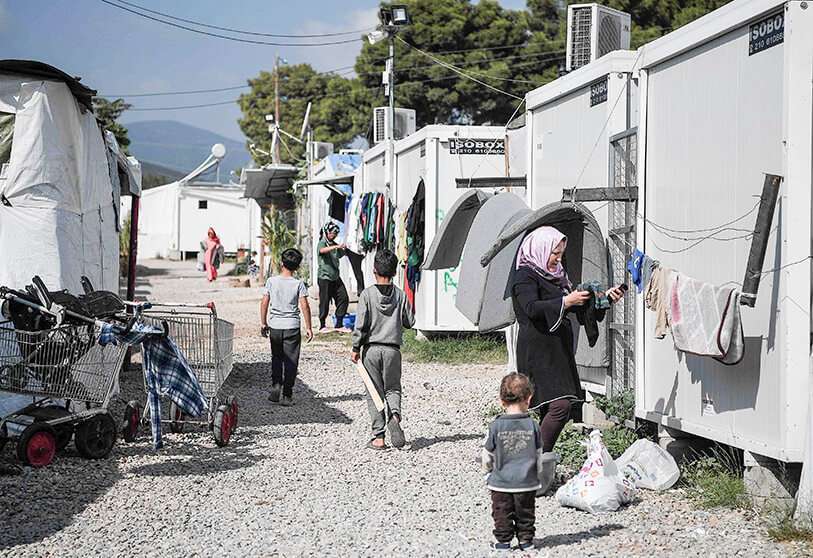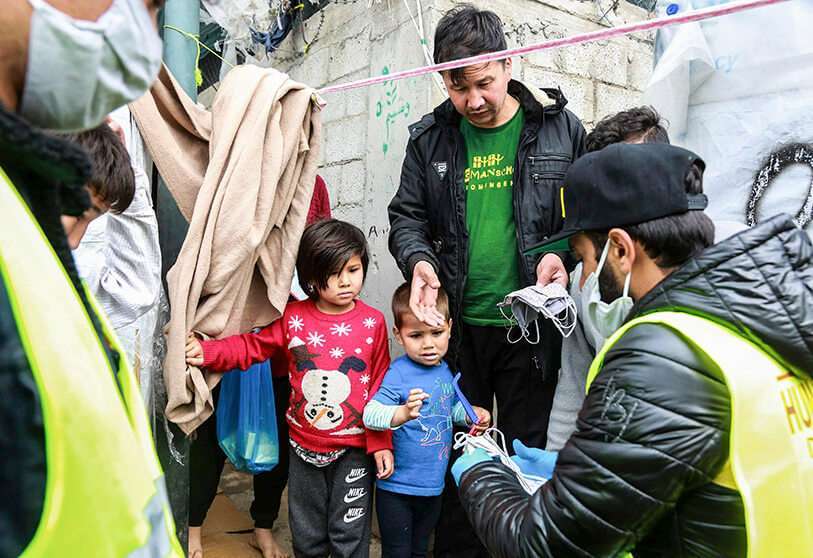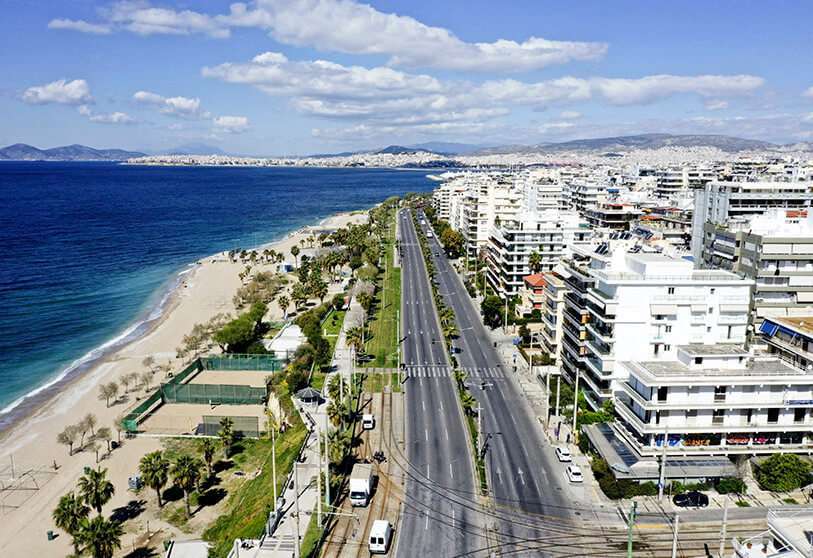How to manage quarantine in a refugee camp

If it's already complicated to put in quarantine a city where most people can be comfortably confined to their homes, like being able to watch Woody Allen's 'Manhattan', read a book by Patrick Modiano or listen to Nina Simone's 'Feeling Good' to raise their spirits, the situation is radically more complex in a refugee camp, as it couldn't be otherwise.
Last week, the Greek Government quarantined more than 2 000 people living in the Ritsona refugee camp, 75 kilometres north-east of Athens. Greek Minister of Migration and Asylum Panagiotis Mitarachi reported that for the next 14 days - starting on 2 April - there was a total ban on entry or exit from the settlement after authorities detected 20 cases of coronavirus.
This outbreak of infection occurred after a 19-year-old woman living in the settlement had to move to the Greek capital last week to give birth, where she was diagnosed as positive for coronavirus. Health authorities began searching for the source of the infection and, after testing dozens of refugees in the camp, 20 tested positive, although none of them had any symptoms. Mitarachi has already assured that the police will be in charge of carrying out the isolation measures in the camp while the diagnostic tests continue.

The conditions in which these people live are overcrowded and with minimal or no medical attention. The lack of access to health systems, sanitation and safe water makes them at risk and more vulnerable to infectious diseases such as COVID-19. In addition, since the beginning of the year, Greece's new migration law has made asylum options more difficult and facilitated detention and deportation processes.
The International Organization for Migration (IOM), one of the official actors of Ritsona, which will continue to operate during the quarantine, is trying to protect the field from a more serious outbreak. An IOM spokesman told local media that food kits and hygiene kits will begin to be distributed to camp residents and people will continue to have access to medicines.
In the meantime, on the well-known Greek island of Lesbos, the confirmed cases are anecdotal, but the lack of means puts the health workers in a difficult position to stop the spread of the virus. Oxfam warned a few weeks ago that if the virus spreads, we would be facing “the worst humanitarian crisis in Europe”. MSF also called for the evacuation of the camps, as the minimum conditions to prevent the spread of the virus cannot be ensured.

More than 20,000 people are confined to the Moria camp in Lesbos without running water or soap to wash their hands, as advised by the World Health Organization.
“The COVID-19 pandemic is likely to take hold in refugee camps, overcrowded reception centers and detention centers housing migrant families, given the rapid spread of the virus,” said UNICEF.
In response to calls to decongest the Aegean islands, the Greek Ministry of Migration has offered a series of “preventive measures” such as the effective closure of camps on the island and in Moria, allowing the departure of 100 people per hour.
In addition, NGOs working in the field should submit a list of the personnel who are in the camp. Refugee settlements tend to be very densely populated and are often close-knit communities. As a result, any outbreak can spread rapidly and underlying health problems resulting from poor nutrition or lack of vaccination can make refugees even more vulnerable.

The obvious and sustainable solution is to improve the health system in these camps so that the refugees can receive medical care. “It' s vital that everyone, including all migrants and refugees, be guaranteed equal access to health services,” calls on the United Nations Refugee Agency (UNHCR), and continues “while countries are closing their borders and limiting cross-border movements, there are ways to manage border restrictions in a way that respects human rights, including the principle of non-refoulment”.
In Greece, coronavirus cases are close to 2,000 and deaths exceed 50.








